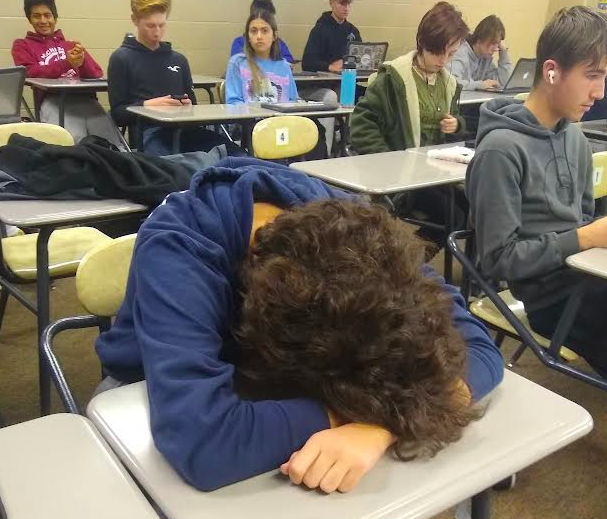Seeking Success
Many students are struggling with the strain of adulthood. As they slowly approach new responsibilities and expectations, the stress levels become higher. With school, extracurriculars, sports, and potentially a job, this raises the question as to how students find the time to balance their life.
In cases of failure, some students are told that they should have studied more, but for some people that’s just not possible. Students involved in athletic activities like cheer, dance, football, colorguard, and band often have games that run until 9:30 p.m. On game days that are away, many students don’t get home until 11 p.m. After these games they are exhausted but still stay up even later just to finish eating, showering, and doing their homework.
Students are encouraged to join extracurricular activities and are told they need them to get into college. This makes students feel as though they have to fill their schedules which, in many cases, overworks them.
“It is very hard to find the time, especially during tennis season. I have to go to practice, then go home and study, practice my violin, and then go to work after and I have more assignments every day,” Alyssa Budd, 10, said.
Time management is a widespread issue among high school students. This is a challenge that students have to face, but doing so may improve their work ethic for their futures.
“Finding a way to successfully manage your time when you are involved in a whole bunch of other things, and maybe even having a job, that is the key to being a successful adult let alone just being successful at school,” Andi Husted, English teacher, said.
Husted watches her students closely and cares about their mental health. She tries to do what she can to help them while still holding them to the high standards she knows they can accomplish.
“I think we, as a staff, do our best to reach out to those kids and do the best that we can to help them, but sometimes it’s really hard for the teachers to recognize that,” Husted said.
Even with the staff’s efforts towards giving help, some students still may feel uncomfortable, unimportant, or even unseen.
“Students are not as well equipped to deal with their mental health issues and they are more pronounced because we as a society are so intune with our mental health, this just wasn’t talked about when I was in school. So now they may recognize they need help but are unable, or maybe even unwilling to ask for the help they might need,” she added.
Many teachers want students to come to them when struggling with their mental health. All students are welcome to visit the counseling office and know that they will be heard. The size of a student’s issue does not define the importance of it.
*To read about a personal experience, check out this column by Remi White*

Howdy! My name is Hannah King and I am so excited to serve for my 3rd year. I wanted to do SPUB because of the iconic show “Gilmore Girls” but my love...


